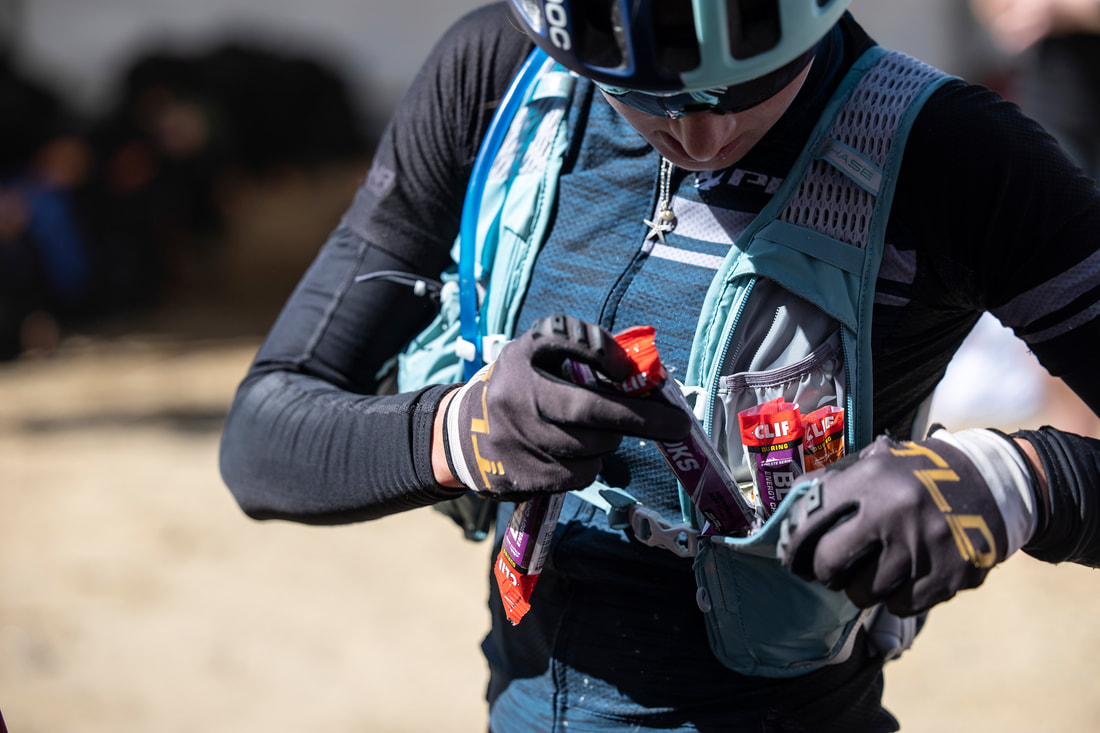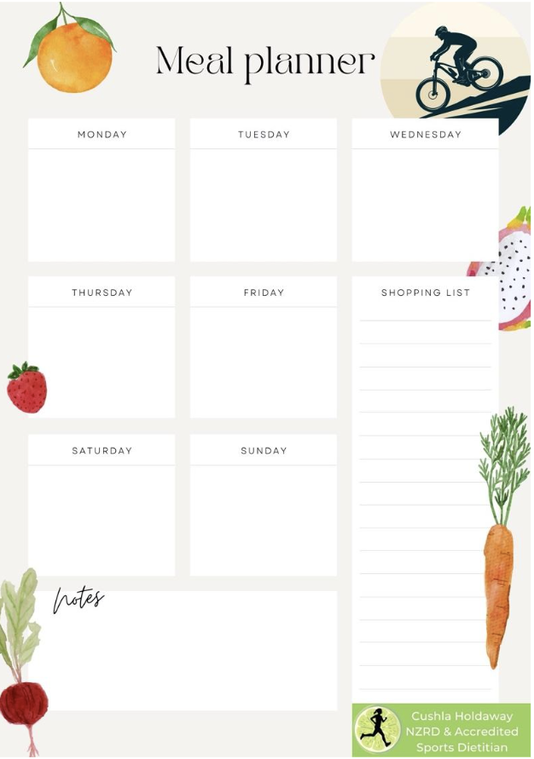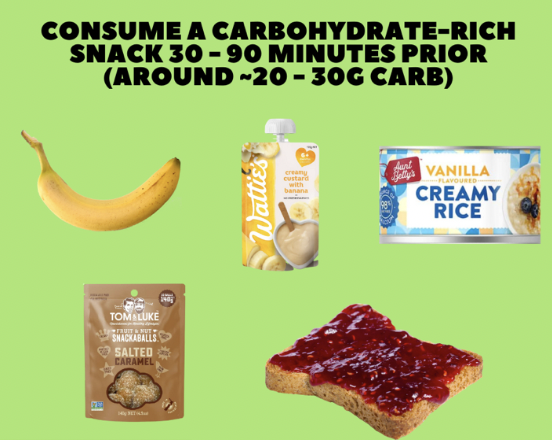|
The middle of winter is here, which means Zwift, frosty mornings, headtorches, and mud. With just under five months until Whaka, now is the time to ensure your winter foundations are established so that you can stay strong, healthy, and dedicated to your Whaka goals. Here are 8 top tips to keep your progress ticking along during the middle of winter: 1. Plan your week for successful nutrition: Whether you have a whiteboard in your kitchen, or a notepad with the days of the week on the fridge (see optional printout below), jot down what meals you will be having on what nights. Start by writing in other commitments in the week such as meals out or late nights at work. Choosing what meals to have in the plan can often be the hardest part. Have each member of the household choose one of their favourite meals. They may also be sharing the cooking if you have older kids in the home or if you live in a shared flat. You could also look through some recipe books and choose those with seasonal produce, you could look online (I would highly recommend Healthy Food Guide), or you could simply just have some super easy meal options like stir fry, meat and three veges or roast with mixed vegetables and potato. It doesn’t have to be fancy, complicated or take a long time to be a healthy and substantial meal. 2. Plan your food shopping: Try to do a main shop once per week, this generally helps you stay on track and save money. The only top up shops that you may need to do is for fresh produce. Utilise online shopping. A 15-minute online shop for delivery is so much easier than a 1-hour round trip or longer to get to a supermarket, or popping in to the shop on your way home from work ravenous and making sub-optimal food choices (we have all been there). From the meals you have planned for the week, build your shopping list around this with all required ingredients including breakfast and lunch items. I would strongly encourage getting enough food to make plenty of evening meal portions so that your lunch is made by simply taking leftovers if this is a feasible option for you. An adequate lunch will help fuel afternoon training sessions. 3. Establish a healthy sleep routine: The dark winter evenings are a great time to put some healthy sleep routines in place. Aim for 7 – 9 hours most nights. Sleep is one of your most powerful performance aids. Top sleep tips:
4. Get the most out of every training session: Every session is important and that means fuelling appropriately. If you are training early in the morning or after work/before dinner, include a small carbohydrate-rich snack beforehand for sessions up to 1-hour (e.g., banana, pouch of baby food, or 1 x grainy toast with peanut butter). Listen to my podcast episode here to learn more about fasted training. More nutrition advice on fuelling for longer sessions yet to come – watch this space. 5. Ensure you are meeting the ‘5 Rs of recovery’ after training: These include repair (protein), refuel (carbohydrates), rehydrate (fluids), revitalise (vegetables & fruit) and rest (relax & sleep). Post-morning training example: eggs (protein) on grainy toast (carbohydrate) with spinach, onion, and tomato (revitalise) and a glass of water (hydration) whilst putting your feet up (rest). 6. Support your immunity: No fancy supplement will protect you from winter nasties, but vitamin C can help reduce the duration and severity of an illness. Load up with fruit and vegetables rather than supplements. Adult men should be aiming for six servings of fruit and vegetables and women five servings daily (two fruit, three or more vegetables). Foods especially high in vitamin C include berries, kiwifruit, capsicum, broccoli, oranges and tomatoes. One serve = approx. one handful. 7. Link up with some training buddies for accountability: A great option could be joining in with the scheduled Team CP Zwift rides or finding a local mountain bike club. You can also join the Whaka 100 participant page to find riders to train with. 8. Get your Vitamin D: A unique vitamin that behaves like a hormone and the only vitamin we can’t solely get from food alone. We have to get it from the sunshine. Read more on the importance of vitamin D and your health here. If you are checking in with your GP about anything else in winter time, ask if they can check your vitamin D levels too. Written by Cushla Holdaway
New Zealand Registered Dietitian Accredited Sports Dietitian (SDA) www.holdawaydietitian.com Ph: 0277226223 E: [email protected] |
PRESENTING PARTNER
MAJOR PARTNERS
RACE TITLE PARTNERS
OFFICIAL PARTNERS
OFFICIAL SUPPLIERS
ORGANISATION PARTNERS
|
STAY IN THE LOOP
Get Whaka100 updates, news and more. |
Copyright © 2022 Whaka100. All rights reserved. Whaka100® word mark and logos are registered trademarks owned by Nduro Events.
|






